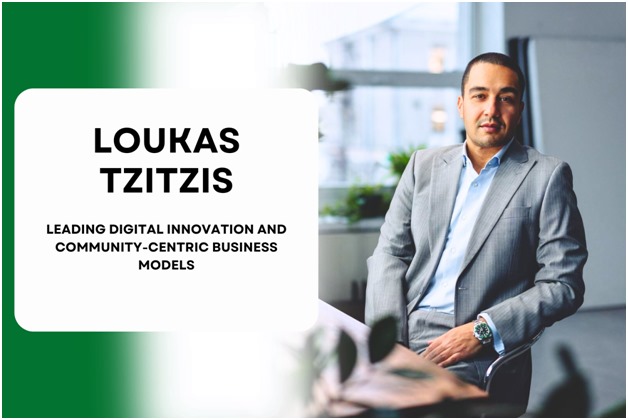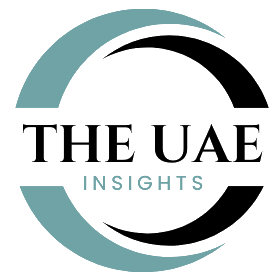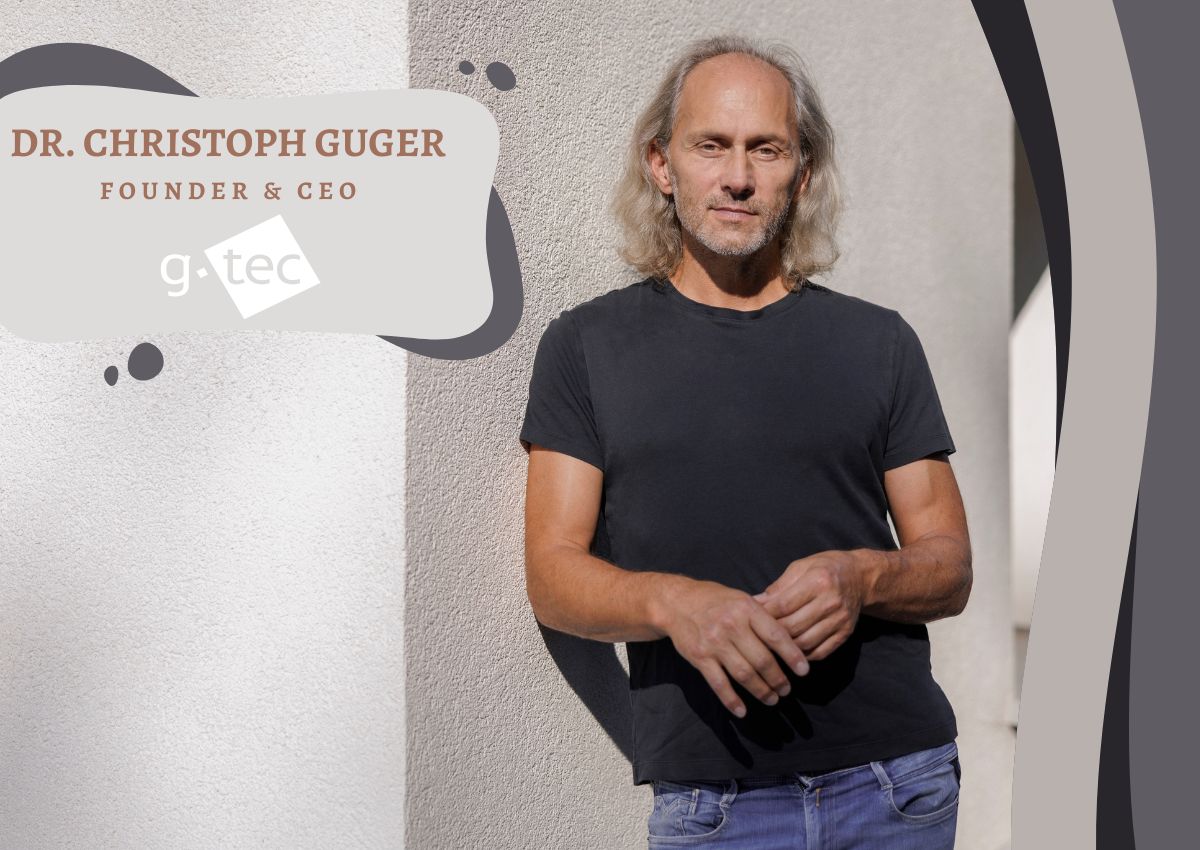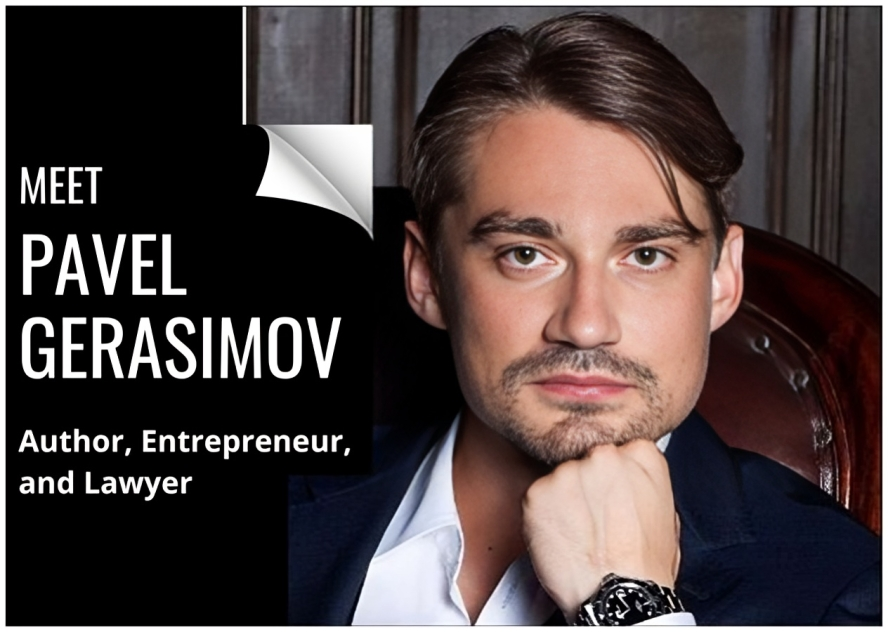Exclusive Interview with Loukas Tzitzis: Leading Digital Innovation and Community-Centric Business Models

Loukas Tzitzis is a seasoned executive with a remarkable career spanning over 30 years across multiple industries, including Fintech, AI, Cybersecurity, IoT, Blockchain, ICT, Medtech, and Utilities. Having lived in 15 countries, his diverse experience has shaped his leadership and business philosophy. To know more about his journey, insights, and leadership approach, we had a discussion with him. Let’s get to it.
The Professional Pathway
We asked Loukas about his journey, “Can you share the story of your professional journey and what inspired you to take on your current role?”
“I have not had the most classical business professional journey! Few have had the fortune of working across multiple industries while experiencing life in 15 countries. My career started in Medical Genetics, but I soon realized that technology, business, and leadership were my true calling. A ‘conversion course’ at Loughborough University led me to British Telecom, where I witnessed firsthand how technology was transforming the lives of individuals and transforming industries,” Loukas shared.
He further added, “Over the next 15 years, I held increasingly senior roles in various IT segments, focusing on startup to mid-size software businesses in various geographies and technologies. This time taught me an invaluable lesson on the importance of what I call “innovation on the money” as well cultural adjustments. In retrospect, I am glad I took such a hard path as I was fortunate to be involved with the early days of the digitalisation of financial services, fintech, blockchain and IoT, both from the operator side as well as the investor side. I credit those 15 years for preparing me for my first executive role in Austria as the Group COO of a 300 M EUR digital holding operating in multiple countries and my first CEO role in Romania 10 years ago. With subsequent leadership roles at Nexign, Amdocs, Tech Mahindra, and Gentrack, I found my ‘gold spot’ in terms of personal and professional alignment and for the last few years I have been focused on my passion of creating or scaling small businesses active in Web 3, AI, Cybersecurity, Fintech or Medtech.”
Leadership Approach
Curious about his leadership philosophy, we asked, “How would you describe your leadership style?”
“Demanding but fair! I am committed to developing and empowering my team but at the same time, I set very high expectations: I expect from each and every one energy, professionalism, high performance, focus on results and a team-first attitude. My leadership principles are rooted in transparency, accountability, and adaptability,” Loukas remarked. “Some key lessons I live by include: leaders must prioritize developing their teams; proactive leadership is essential to driving change; high-performing teams require tough decisions at times; communication should be clear, concise, and direct; balancing empathy with discipline is key to leadership; and growth often comes with ‘growing pains.’ Leadership, to me, is like an athletic event—sometimes a sprint, sometimes a marathon. Maintaining resilience and adaptability is crucial,” He stated.
Key Achievements
Wanting to know more about their accomplishments, we asked Loukas, “What has been your biggest achievement to date?”
“ There have been quite a few achievements to date, but I tend not to dwell on them. It does not make sense to live in the past, I feel that is something that one should do when they have retired, and I am very far from that (laughing). Besides, I always say that what truly matters is not what you think of yourself but what your customers and peers say.
In that sense, the 2025 Financial Services Thought Leadership Global Award, the 2023 DX Inspire Global Award for Innovation Ecosystems, my inclusion in the 2021 UK CIO 100 as well as being a finalist in the 2019 TM Forum CTO of the year awards hold great significance, as they reflect industry-wide recognition of my impact beyond individual tenures. I am also extremely proud of the fact that my customers and peers have always spoken of me in an overwhelmingly positive fashion, and I have quality relationships that run deep across EMEA, APAC, APJ and Americas for over 20 years.
At the same time and while I have always been an active mentor and coach, I have come to a stage in my career where I feel an increasing responsibility to prepare the next generation of leaders as well as help set the stage for what I hope will be a better future. I take even more pride in the achievements of my mentees than my own and my involvement with the AI for Developing Nations Forum and my selection as an Ambassador at the AI Frontier Network are just as meaningful—if not more. As leaders, we have an obligation to foster a more inclusive and innovative future, which begins with education and openness in technological advancement,” he said.”
Developing Talent
To explore how he nurtures talent, we asked, “What strategies do you use to motivate and develop talent in your organization?”
“Talent development must align with the company’s size, lifecycle, and culture. The generic principles are the same but there is no one-size-fits-all approach. The first step is setting a clear organizational agenda for development and assessing the current state,” Loukas emphasized.
“A growth-oriented culture fosters learning and personal development, helping employees transcend their roles and unlock new potential and where necessary, help them transition to another role. I prioritize mentorship, coaching, and succession planning to cultivate the next generation of leaders. Performance assessments allow us to objectively identify strengths and areas for improvement. By aligning talent aspirations with business needs, we create tailored development plans that not only enhance skills but also boost employee retention and engagement. Success truly starts with having the right people in the right place at the right time and that is why I always say that people are our greatest asset, and only by investing in the growth of the talent pool any company can ensure long-term success.” concluded Loukas Tzitzis.
Lessons Learned
We asked Loukas, “What lessons have you learned in your career that continue to guide you?”
Loukas Tzitzis shared, “I’ve learned that adaptability is essential. You can plan meticulously, but unexpected challenges will arise, and how you respond defines your leadership. I’ve also learned the power of humility—no one knows everything, and listening is just as important as leading. Surrounding yourself with the right people and creating an environment where ideas and feedback are encouraged makes all the difference.”
Advice for Aspiring Leaders
When we asked Loukas about his advice for aspiring leaders looking to make an impact, he advised, “Stay curious and embrace continuous learning. Understand that leadership is about service – putting your team, customers and mission ahead of yourself. Be bold in decision-making but humble in execution. Don’t fear failure; view it as a stepping stone. And most importantly, know your values and let them guide every action.”
Vision for the Future
We further asked Loukas, “Do you think that AI is set to transform our lives as much as people say?”
Loukas Tzitzis stated, “This is an excellent question, and we must separate hype from true potential. I do believe that from all the recent discussions on “the next best thing” AI can truly have a significantly bigger impact because the underlying requirements have been around and applied for a while. With that in mind, I absolutely believe that AI will continue revolutionizing several segments such as financial services, Cybersecurity, ICT, Biotech, Pharmaceuticals, MedTech, and transportation for example. However, I think we are now approaching a natural evolutionary fork where the race of “ANI to AGI to ASI” will potentially split into 2 distinct pathways: the generalist vs specialist path, powered by open- or tightly centred ecosystems. This will have a profound impact on global adoption and future inclusivity as developing nations are likely to take a very different path to developed nations. We should not lose sight of the fact that Africa and Latin America demonstrate already excellent potential for investment and their demographics support and justify such considerations.
At the same time, the EU logistics sector is shifting toward full digital and real-time integration, enabling nations, companies, and users to manage transport dynamically. With the eFTI program set to take effect sometime around 2027, the industry is on the verge of a major transformation that will enhance access to essential goods. Trading partners like the Middle East will also need to adapt to this new framework and I also see a major application of AI in this initiative coming up.”
“With AI, Web3, and Cybersecurity—combined with the right balance of regulation, legislation, and supervision—the future of industries will be more autonomous and efficient.” He further added,
Closing Thoughts
To conclude, we asked Loukas for a final thought. He reflected, “Leadership is a privilege. It’s about creating value beyond numbers—impacting lives, fostering trust, inspiring those around you. The biggest responsibility we have is to leave matters in a better state than they were when we first got them and prepare a better, fairer, more inclusive future.”
Follow Loukas Tzitzis on LinkedIn
Also Read :-
The most successful Indian Entrepreneur on the World Gaming Stage: Parth Das
Promoting Health And Wellness With Natural Solutions: Dr. Christina Rahm Shares Her Story









